Outstanding referees
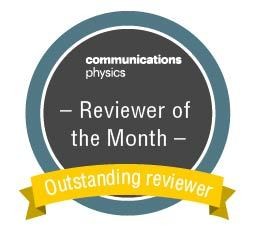 We highlight the exceptional contribution of some of the outstanding referees that have reviewed for Communications Physics. This list is updated monthly, and all referees listed have consented to being named.
We highlight the exceptional contribution of some of the outstanding referees that have reviewed for Communications Physics. This list is updated monthly, and all referees listed have consented to being named.
We must note that while it is our opinion that these referees have gone above and beyond what is expected of a reviewer in terms of the value of their reports, the detail of their analysis, or the degree to which they have helped the authors improve their manuscripts prior to publication, we are equally indebted to the hundreds of referees not named below. For every named referee there are many more who have made similar contributions to the manuscripts which they reviewed. We hope that this will inspire our readership about the exceptional value of this element in the process of evaluating new research. See our first year editorial for more information about this inititive.
2024
April 2024 - Anton Trushechkin
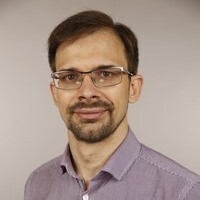 Anton Trushechkin is a leading researcher in the Steklov Mathematical Institute of Russian Academy of Sciences in Moscow and a researcher in the Heinrich Heine University Düsseldorf. His current research concerns security proofs of quantum key distribution for the case of practical devices, quantum information in networks and rigorous derivation of quantum master equations in the theory of open quantum systems from the first principles. He is a laureate of the Award of the Government of Moscow for Young Scientists in Mathematics, Mechanics, and Computer Science in 2022 for the proof of security of quantum cryptography with practical devices.
Anton Trushechkin is a leading researcher in the Steklov Mathematical Institute of Russian Academy of Sciences in Moscow and a researcher in the Heinrich Heine University Düsseldorf. His current research concerns security proofs of quantum key distribution for the case of practical devices, quantum information in networks and rigorous derivation of quantum master equations in the theory of open quantum systems from the first principles. He is a laureate of the Award of the Government of Moscow for Young Scientists in Mathematics, Mechanics, and Computer Science in 2022 for the proof of security of quantum cryptography with practical devices.
March 2024 - Kirk Flippo
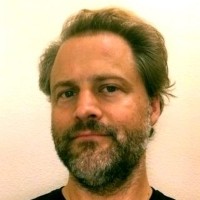 Kirk Flippo is the Extreme Hydro Team Leader (HED Hydro and Fluids) in the Applied and Fundamental Physics group at Los Alamos National Lab. His team researches plasma hydrodynamics and turbulence and he dabbles in short-pulse laser acceleration of electrons an ions, the production Giga-gauss magnetic fields, and x-ray, neutrons and antimatter. His current research interests include High Energy Density (HED) experiments and Fusion.
Kirk Flippo is the Extreme Hydro Team Leader (HED Hydro and Fluids) in the Applied and Fundamental Physics group at Los Alamos National Lab. His team researches plasma hydrodynamics and turbulence and he dabbles in short-pulse laser acceleration of electrons an ions, the production Giga-gauss magnetic fields, and x-ray, neutrons and antimatter. His current research interests include High Energy Density (HED) experiments and Fusion.
February 2024 - Gabriel Perdue
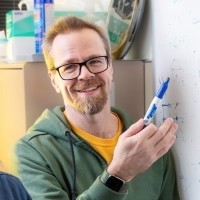 Gabe Perdue is a Senior Scientist at Fermi National Accelerator Laboratory. He studies quantum simulation for applications in science, with a special focus on error correction and mitigation. He also works on machine learning for the readout and control of quantum computers.
Gabe Perdue is a Senior Scientist at Fermi National Accelerator Laboratory. He studies quantum simulation for applications in science, with a special focus on error correction and mitigation. He also works on machine learning for the readout and control of quantum computers.
January 2024 - Nikita Kavokine 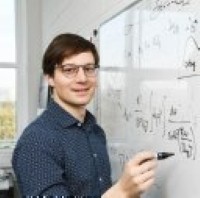 Nikita Kavokine is a group leader at the Max Planck Institute for Polymer Research in Mainz and a research fellow at the Flatiron Institute in New York. His group combines theory and experiments to study quantum effects in the transport of liquids at the nanoscale.
Nikita Kavokine is a group leader at the Max Planck Institute for Polymer Research in Mainz and a research fellow at the Flatiron Institute in New York. His group combines theory and experiments to study quantum effects in the transport of liquids at the nanoscale.
2023
December 2023 - Lily Anderson and Erik Gauger
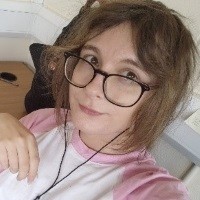 Lily Anderson investigates quantum effects in the light-matter interaction of strongly coupled systems with applications for light-harvesting.
Lily Anderson investigates quantum effects in the light-matter interaction of strongly coupled systems with applications for light-harvesting.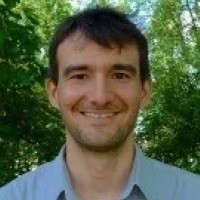 Erik Gauger is a Professor in the Institute of Photonics and Quantum Sciences at Heriot-Watt University, where he leads the quantum theory team. His group research focuses on the theory of quantum nanostructures and is motivated by the prospect of next generation quantum technologies for energy, sensing, and information processing.
Erik Gauger is a Professor in the Institute of Photonics and Quantum Sciences at Heriot-Watt University, where he leads the quantum theory team. His group research focuses on the theory of quantum nanostructures and is motivated by the prospect of next generation quantum technologies for energy, sensing, and information processing.
The review report was provided by Lily under supervision of Prof. Erik Gauger, giving an excellent example of mentoring of early career researchers in producing high quality reviewer reports, something that we strongly encourage at Communications Physics.
November 2023 - Cristina Rea
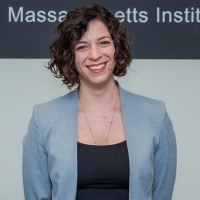 Cristina is a Research Scientist and the MIT PSFC Disruption Studies Group Leader. Her research focuses on interpretable and adaptive AI research in fusion. She leads the multi-institutional collaboration on Open and FAIR Fusion for Machine Learning Applications and she is the PSFC Liaison Officer for the IAEA Collaborating Centre on AI in Fusion and Plasma Science.
Cristina is a Research Scientist and the MIT PSFC Disruption Studies Group Leader. Her research focuses on interpretable and adaptive AI research in fusion. She leads the multi-institutional collaboration on Open and FAIR Fusion for Machine Learning Applications and she is the PSFC Liaison Officer for the IAEA Collaborating Centre on AI in Fusion and Plasma Science.
Image credit Gretchen Ertl
October 2023 - Filip Rozpedek
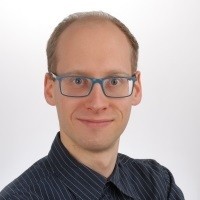 I am an Assistant Professor in the Manning College of Information and Computer Sciences at the University of Massachusetts Amherst. My work focuses on designing novel architectures for quantum communication. Recently I have been interested in the application of quantum error correcting codes, specifically the bosonic codes, in quantum repeater schemes. My other interests are modeling of the proof-of-principle quantum repeater experiments and optimizing entanglement distillation schemes.
I am an Assistant Professor in the Manning College of Information and Computer Sciences at the University of Massachusetts Amherst. My work focuses on designing novel architectures for quantum communication. Recently I have been interested in the application of quantum error correcting codes, specifically the bosonic codes, in quantum repeater schemes. My other interests are modeling of the proof-of-principle quantum repeater experiments and optimizing entanglement distillation schemes.
September 2023 - Elsa Abreu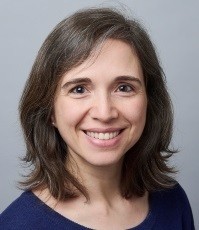 Elsa Abreu is an Assistant Professor of Physics at ETH Zürich. Her research focuses on investigating the dynamical response of quantum materials that are brought out of equilibrium by a strong ultrafast light pulse. She uses time-resolved techniques across the energy spectrum to modulate and control the intriguing properties of a variety of materials such as Mott insulators, multiferroics and spin-ladder compounds.
Elsa Abreu is an Assistant Professor of Physics at ETH Zürich. Her research focuses on investigating the dynamical response of quantum materials that are brought out of equilibrium by a strong ultrafast light pulse. She uses time-resolved techniques across the energy spectrum to modulate and control the intriguing properties of a variety of materials such as Mott insulators, multiferroics and spin-ladder compounds.
Image (c) ETH Zurich/Kilian Kessler
August 2023 - William Uspal
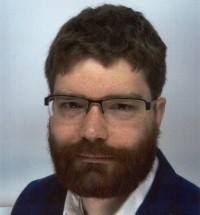 William Uspal is Assistant Professor of Mechanical Engineering at the University of Hawai'i at Mānoa. He uses theoretical methods to study self-organization in soft and active matter, with a particular focus on the fluid dynamics of these systems.
William Uspal is Assistant Professor of Mechanical Engineering at the University of Hawai'i at Mānoa. He uses theoretical methods to study self-organization in soft and active matter, with a particular focus on the fluid dynamics of these systems.
July 2023 - Tyler Harvey
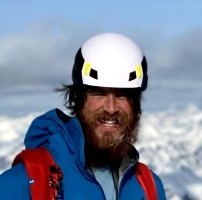 Tyler Harvey is a staff scientist in electron microscope research and development at Nion Co. in Kirkland, WA. His research interests include electron vortices, ultrafast imaging, phase contrast, and optics design.
Tyler Harvey is a staff scientist in electron microscope research and development at Nion Co. in Kirkland, WA. His research interests include electron vortices, ultrafast imaging, phase contrast, and optics design.
June 2023 - Jakob Runge 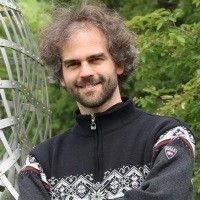 Jakob Runge is head of the Causal Inference group at German Aerospace Center’s (DLR) Institute of Data Science in Jena and Chair of Climate Informatics at Technische Universität Berlin, department of computer science. His core research is on theory, methods, and accessible software for causal inference on time series data with applications to Earth system sciences and beyond.
Jakob Runge is head of the Causal Inference group at German Aerospace Center’s (DLR) Institute of Data Science in Jena and Chair of Climate Informatics at Technische Universität Berlin, department of computer science. His core research is on theory, methods, and accessible software for causal inference on time series data with applications to Earth system sciences and beyond.
Photo: © Mathematisches Forschungsinstitut Oberwolfach
May 2023 - Jean-Damien Pillet
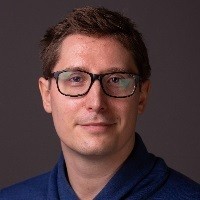 Jean-Damien Pillet is an Assistant Professor at Ecole Polytechnique in the Laboratoire de Physique de la Matière Condensée. Jean-Damien is an experimental physicist and one of the PI of the QCMX Lab, where he explores the quantum properties of electronic circuits and matter. The strategy of QCMX consists in coupling superconducting circuits normally used to process quantum information to materials in order to probe their quantum properties and discover new electronic states. He currently focuses his research on hybrid superconducting circuits based on carbon nanotubes.
Jean-Damien Pillet is an Assistant Professor at Ecole Polytechnique in the Laboratoire de Physique de la Matière Condensée. Jean-Damien is an experimental physicist and one of the PI of the QCMX Lab, where he explores the quantum properties of electronic circuits and matter. The strategy of QCMX consists in coupling superconducting circuits normally used to process quantum information to materials in order to probe their quantum properties and discover new electronic states. He currently focuses his research on hybrid superconducting circuits based on carbon nanotubes.
April 2023 - Ana Millán
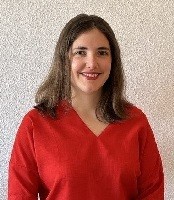
I am a Ramón y Cajal postdoctoral fellow in the Department of Electromagnetism and Matter Physics, at University of Granada. My research focusses on network neuroscience, from theoretical studies such as describing coupling and emergent synchronization on networks with high-order coupling, to clinical applications. As part of my work I have developed a computational tool named ESSES (Epidemic Spreading Seizure and Epilepsy Surgery model) to simulate epilepsy surgery in silico and aid surgical planning in a patient-by-patient manner.
March 2023 - Pim van der Hoorn
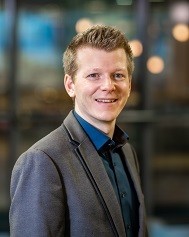 Pim van der Hoorn is an Assistant Professor at the department of Mathematics and Computer Science at Eindhoven University of Technology. He is also a board member of the Dutch Network Science Society. The two main pillars of his research are the development of mathematical foundations for network science and understanding emerging geometry in networks. In his research he uses probability theory, statistics, random graphs and different notions of graph limits. He also works on applications of random graphs and probability theory in other domains, such as chemistry and biology.
Pim van der Hoorn is an Assistant Professor at the department of Mathematics and Computer Science at Eindhoven University of Technology. He is also a board member of the Dutch Network Science Society. The two main pillars of his research are the development of mathematical foundations for network science and understanding emerging geometry in networks. In his research he uses probability theory, statistics, random graphs and different notions of graph limits. He also works on applications of random graphs and probability theory in other domains, such as chemistry and biology.
February 2023 - Alina Kononov
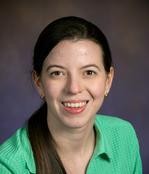 Alina Kononov is a postdoctoral researcher at Sandia National Laboratories and completed her PhD at the University of Illinois at Urbana-Champaign. Her research interests span electronic structure theory and its applications, focusing on first-principles modeling of excited electron dynamics on massively parallel architectures and emerging quantum platforms. Her work has offered insights for diverse topics ranging from ion-beam imaging techniques for 2D materials to x-ray scattering diagnostics for warm dense matter.
Alina Kononov is a postdoctoral researcher at Sandia National Laboratories and completed her PhD at the University of Illinois at Urbana-Champaign. Her research interests span electronic structure theory and its applications, focusing on first-principles modeling of excited electron dynamics on massively parallel architectures and emerging quantum platforms. Her work has offered insights for diverse topics ranging from ion-beam imaging techniques for 2D materials to x-ray scattering diagnostics for warm dense matter.
January 2023 - Cory Hargus
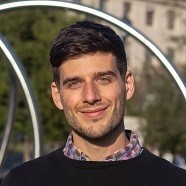 Cory Hargus is a postdoctoral researcher in the Complex Matter and Systems Laboratory at Université Paris Cité, having recently obtained his PhD from the University of California, Berkeley. His research centers on the theory and simulation of biomolecular dynamics and active matter. A major motivation for this work is the study of how collective phenomena emerge out of individual dynamics, particularly in driven and living systems, where symmetry-breaking at microscopic scales can give rise to novel behaviors and functionality at the macroscale.
Cory Hargus is a postdoctoral researcher in the Complex Matter and Systems Laboratory at Université Paris Cité, having recently obtained his PhD from the University of California, Berkeley. His research centers on the theory and simulation of biomolecular dynamics and active matter. A major motivation for this work is the study of how collective phenomena emerge out of individual dynamics, particularly in driven and living systems, where symmetry-breaking at microscopic scales can give rise to novel behaviors and functionality at the macroscale.
2022
November 2022 - Rui Luo
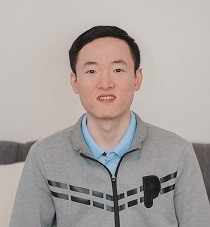 Rui Luo is a graduate student at Cornell's Statistical Signal Processing Laboratory, supervised by Prof. Vikram Krishnamurthy. His research interests are statistical signal processing and machine learning with graphs. He applies his research to practical problems in social networks, blockchain systems, and Internet of Things.
Rui Luo is a graduate student at Cornell's Statistical Signal Processing Laboratory, supervised by Prof. Vikram Krishnamurthy. His research interests are statistical signal processing and machine learning with graphs. He applies his research to practical problems in social networks, blockchain systems, and Internet of Things.
October 2022 - Daniel Oi
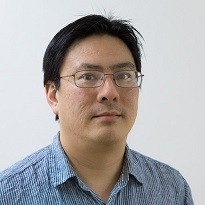 Dr Daniel Oi is a quantum information theorist in the Computational Nonlinear & Quantum Optics group at the University of Strathclyde, Glasgow. He is the Director of the EPSRC International Network in Space Quantum Technologies and specialises in satellite quantum communication and the development of space quantum networking and entanglement distribution.
Dr Daniel Oi is a quantum information theorist in the Computational Nonlinear & Quantum Optics group at the University of Strathclyde, Glasgow. He is the Director of the EPSRC International Network in Space Quantum Technologies and specialises in satellite quantum communication and the development of space quantum networking and entanglement distribution.
September 2022 - Ankit Disa
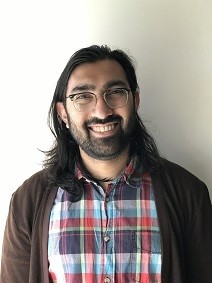 Ankit Disa is an Assistant Professor in the School of Applied and Engineering Physics at Cornell University. His research focuses on the use of light to dynamically control quantum phases and induce new non-equilibrium functionalities on ultrafast timescales. He studies a wide range of systems, from superconductors to ferroelectrics, with a special interest in emergent phenomena in atomically engineered thin films and heterostructures.
Ankit Disa is an Assistant Professor in the School of Applied and Engineering Physics at Cornell University. His research focuses on the use of light to dynamically control quantum phases and induce new non-equilibrium functionalities on ultrafast timescales. He studies a wide range of systems, from superconductors to ferroelectrics, with a special interest in emergent phenomena in atomically engineered thin films and heterostructures.
August 2022 - Aanjaneya Kumar
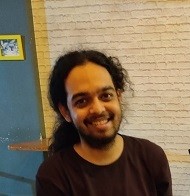 Aanjaneya is a graduate student, working in the group of Prof. M. S. Santhanam, at the Indian Institute of Science Education and Research (IISER) Pune. His primary interest is in obtaining insight into practically relevant problems, which could arise in various fields including (but not restricted to) physics, biology, and the social sciences, by first formulating them as mathematical models and then analysing them using tools from statistical physics, graph theory and evolutionary game theory. His most recent fascination lies in the study of emergent phenomena in populations of interacting AI algorithms.
Aanjaneya is a graduate student, working in the group of Prof. M. S. Santhanam, at the Indian Institute of Science Education and Research (IISER) Pune. His primary interest is in obtaining insight into practically relevant problems, which could arise in various fields including (but not restricted to) physics, biology, and the social sciences, by first formulating them as mathematical models and then analysing them using tools from statistical physics, graph theory and evolutionary game theory. His most recent fascination lies in the study of emergent phenomena in populations of interacting AI algorithms.
July 2022 - Ariel Epstein
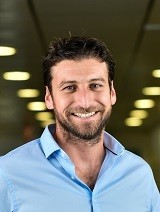 Ariel Epstein is an Associate Professor with the Andrew and Erna Viterbi Faculty of Electrical and Computer Engineering at the Technion – Israel Institute of Technology, Haifa, Israel, where he is leading the Modern Electromagnetic Theory and Applications (META) research group. His research focuses on harnessing complex media formations such as metasurfaces and metagratings for devising novel antenna and microwave devices, and investigation of related theoretical concepts and physical effects.
Ariel Epstein is an Associate Professor with the Andrew and Erna Viterbi Faculty of Electrical and Computer Engineering at the Technion – Israel Institute of Technology, Haifa, Israel, where he is leading the Modern Electromagnetic Theory and Applications (META) research group. His research focuses on harnessing complex media formations such as metasurfaces and metagratings for devising novel antenna and microwave devices, and investigation of related theoretical concepts and physical effects.
June 2022 - Paul Keatley
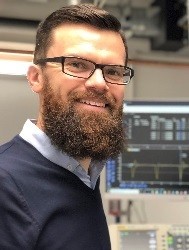 Dr Paul Keatley is the Senior Experimental Officer of the Exeter Time-Resolved Magnetism (EXTREMAG) facility in the UK with a research background in Spintronics and Magnonics and particular expertise in time-resolved scanning magneto-optical microscopy, for which he received his PhD in 2008 from the University of Exeter. His research interests cover a broad range of high-frequency dynamical processes in magnetic materials and devices down to the nanoscale and sub-picosecond timescales, utilising the low temperature and high magnetic field capabilities of EXTREMAG for a variety of time-domain optical pump-probe, microscopy, and terahertz experiments with users of the facility.
Dr Paul Keatley is the Senior Experimental Officer of the Exeter Time-Resolved Magnetism (EXTREMAG) facility in the UK with a research background in Spintronics and Magnonics and particular expertise in time-resolved scanning magneto-optical microscopy, for which he received his PhD in 2008 from the University of Exeter. His research interests cover a broad range of high-frequency dynamical processes in magnetic materials and devices down to the nanoscale and sub-picosecond timescales, utilising the low temperature and high magnetic field capabilities of EXTREMAG for a variety of time-domain optical pump-probe, microscopy, and terahertz experiments with users of the facility.
May 2022 - Pablo Burset
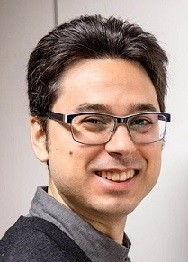
Pablo Burset is a research fellow at the Autonomous University of Madrid within the “Atracción de Talento” Program of the Community of Madrid. Pablo is a theoretical physicist working on electronic transport in mesoscopic systems, superconductivity, and their applications for developing quantum technologies. He specializes in novel materials such as quantum dots, graphene, and topological insulators, and their interplay with superconductivity and magnetism in hybrid junctions.
April 2022 - Atsushi Tsukazaki
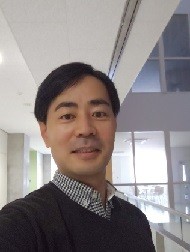 Atsushi Tsukazaki is a Professor at Institute for Materials Research (IMR), Tohoku University, Japan. His research focuses on condensed matter physics at the solid-state interface and in thin films based on topological materials science and thin films chemistry.
Atsushi Tsukazaki is a Professor at Institute for Materials Research (IMR), Tohoku University, Japan. His research focuses on condensed matter physics at the solid-state interface and in thin films based on topological materials science and thin films chemistry.
March 2022 - Riccardo Hertel
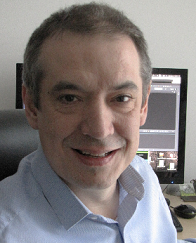 Riccardo Hertel is a senior researcher (Directeur de Recherche) at the National Centre for Scientific Research (CNRS) in France, working at the Institute of Physics and Chemistry of Materials of Strasbourg. His research centers on micromagnetic theory, magnetic nanostructures, and the development of advanced simulation software. With his team, he investigates the structure and dynamics of topological and three-dimensional magnetic textures on the nanoscale.
Riccardo Hertel is a senior researcher (Directeur de Recherche) at the National Centre for Scientific Research (CNRS) in France, working at the Institute of Physics and Chemistry of Materials of Strasbourg. His research centers on micromagnetic theory, magnetic nanostructures, and the development of advanced simulation software. With his team, he investigates the structure and dynamics of topological and three-dimensional magnetic textures on the nanoscale.
February 2022 - Leone Rossetti
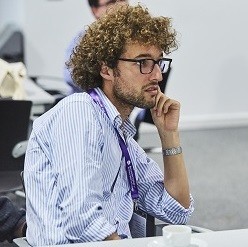 Leone Rossetti is a Marie Curie Fellow at the Institute of Bioengineering of Catalonia. His research combines biophysics and mechanobiology to study collective cell migration and cell guidance.
Leone Rossetti is a Marie Curie Fellow at the Institute of Bioengineering of Catalonia. His research combines biophysics and mechanobiology to study collective cell migration and cell guidance.
January 2022 - Luca Delacretaz
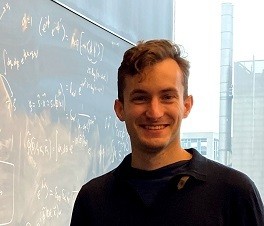 Luca Delacretaz is a McCormick Fellow at the Kadanoff Center for Theoretical Physics in the University of Chicago. His research uses effective field theory techniques to study non-Fermi liquids and the out of equilibrium dynamics of quantum many-body systems.
Luca Delacretaz is a McCormick Fellow at the Kadanoff Center for Theoretical Physics in the University of Chicago. His research uses effective field theory techniques to study non-Fermi liquids and the out of equilibrium dynamics of quantum many-body systems.
2021
December 2021 - Joseph Hamill
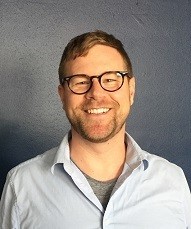
Joseph M. Hamill is a Marie Curie Independent Fellow at the University of Copenhagen in the Nanochemistry section of the Department of Chemistry and the Nano-Science Center. He studies charge transport and thermal properties in single-molecule break junctions.
November 2021 - Jennifer Mitchel
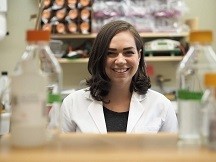
October 2021 - Urbasi Sinha - Urbasi Sinha is a Professor at the Raman Research Institute in Bangalore, India, where she is heading the Quantum Information and Computing (QuIC) laboratory. She is an associate faculty member at IQC Canada, CQIQC Canada and a Simons Emmy Noether Fellow at the Perimeter Institute, Canada. She completed her PhD and M.Sc in Physics from University of Cambridge, UK. She has been a Gates Cambridge scholar during her Ph.D and a Nehru-Chevening scholar during her masters. She was a post-doctoral research associate in the Cavendish labs, Cambridge as well as at IQC Canada. Her lab at RRI specializes in experiments on photonic quantum information processing including quantum computing and quantum communication, primarily using single and entangled photons. She is heading India’s first project on satellite based secure quantum communications.
September 2021 - Mariella Minder - Mariella Minder is a postdoctoral researcher within the Atomic and Laser Physics department of the University of Oxford. Her research interests lie in the development of the underlying quantum technologies that compose the foundation for the quantum internet, to a state of practical importance. Currently her work is focused on optical phase controlled entangling gates in ion-traps. In 2020, she completed her Ph.D. developing novel systems for long distance quantum communications, on a collaborative project between the University of Cambridge and Toshiba Research Europe.
August 2021 - Vedika Khemani - Vedika Khemani is an assistant professor of physics at Stanford University. She is a condensed matter theorist broadly interested in the study of many-body quantum systems out of equilibrium.
July 2021 - Danny Raj M - Danny Raj M is a DST-INSPIRE faculty, in the department of chemical engineering at the Indian Institute of Science, Bengaluru, India. He is fascinated by the dynamics exhibited by systems that are made up of many interacting entities; this includes an ensemble of droplets in a microchannel, a school of fish or even vehicular traffic. He uses a combination of agent based modelling, optimisation and data-based approaches to investigate, how collective phenomena in such complex systems emerge from simple interactions at the level of the entities/agents and how they can be engineered.
June 2021 - Archana Kamal - Archana Kamal completed her PhD from Yale University and her postdoctoral research at MIT. Her dissertation research introduced the theoretical paradigm of nonreciprocal quantum information processing, and her contributions in this field were recognized by MIT Technology Review which named her as one of the 35 Global Innovators under 35 in 2018. She leads the QUEST group (QUantum Engineering Science and Technology) at UMass Lowell, with focus on research themes such as scalable protocols for entanglement generation, nonlinear quantum systems for high-fidelity readout and amplification, and applications of quantum information concepts to tackle questions in early Universe cosmology and thermodynamics.
May 2021 - Fanni Juranyi - Dr Fanni Juranyi is instrument scientist in the Laboratory for Neutron Scattering and Imaging at the Paul Scherrer Institut (Switzerland). She is expert in quasielastic- and inelastic neutron spectroscopy. She is interested in the atomic scale dynamics of various materials, both soft matter and solid state. She enjoys to work with the international user community.
April 2021 - Cigdem Capan - Dr. Cigdem Capan currently holds a joint appointment between the Pacific Northwest National Laboratory and Washington State University. While her main focus is undergraduate teaching, her research interests include superconductivity and magnetism in lanthanide and actinide compounds. She has past experience with crystal growth and characterization as well as measurements of thermodynamic and transport properties at cryogenic temperatures, high magnetic fields and high pressures. She is currently involved in NMR and NQR spectroscopy investigations of actinide compounds.
March 2021 - Ryan Babbush - Ryan Babbush is a research scientist leading the quantum algorithms team within Google's quantum computing program. His research employs both physics and computer science methods in order to develop and analyze new approaches for applying quantum computers to problems in quantum chemistry, machine learning and condensed matter physics. In addition to more theoretical work in quantum simulation and error-correction, his team focuses on experimentally implementing and testing new algorithms and error-mitigation strategies on noisy intermediate-scale superconducting qubit platforms. He completed his PhD in the lab of Alán Aspuru-Guzik at Harvard University in 2015.
February 2021 - Oguzhan Gurlu - Oguzhan Gürlü is a professor at the Physics Department of Istanbul Technical University. He is interested in the development of scanning probe microscopes (SPMs) and their applications on various novel material systems such as topological materials, nanoscale oxides and water-surface interactions. He focuses on the use of SPMs not only in imaging, but he also explores the opportunities to expand their capabilities as tools for nanoscale manipulation and spectroscopy. He is presently contributing to the efforts on the establishment of the Quantum Metrology Laboratory of National Metrology Institute (TUBITAK-UME) as an active researcher.
January 2021 - Mariana Carvalho - Dr. Mariana Carvalho ir currently the facility manager for the “Nanophotonics and Bioimaging” optical facility at INL. She has a strong background in Optical coherent tomography, nonlinear microscopy and SPIM microscopy. Her research focused in developing new features for these optical tools and take the most of her optical knowledge for developing new diagnosis and testing instruments.
2020
December 2020 - Tomas Ekeberg - Dr. Tomas Ekeberg is a researcher in the laboratory of Molecular Biophysics at Uppsala University. His research is focused on developing new methods for structural studies of viruses and macromolecules enabled by the ultrafast X-ray pulses from free-electron lasers. He combines simulations and experimental data to investigate and improve the data-analysis algorithms involved to go from raw diffraction to biological structure.
November 2020 - Philip Moriarty - Philip Moriarty is a professor of physics at the University of Nottingham. His research interests span a variety of topic themes in nanoscale physics including, in particular, the imaging, spectroscopy, and manipulation of single atoms and molecules using scanning probe microscopy. He is also enthusiastically committed to public engagement, and collaborates regularly with Brady Haran on the Sixty Symbols YouTube project, which was awarded the Institute of Physics’ Kelvin prize in 2016 for “the innovative and effective promotion of the public understanding of physics”
October 2020 - Andrew Maxwell - Andrew Maxwell is a postdoctoral fellow at the UCL quantum science and technology institute (UCLQ), investigating aspects such as quantum sensing and photoelectron orbital angular momentum in strong field systems. From November he will start at postdoc with Maciej Lewenstein at the Instituto de Ciencias Fotónicas (ICFO) in Barcelona extending this work to examine entanglement in strong field non-sequential double ionization.
September 2020 - Georgina Klemencic - Georgina is Disglair Lecturer in Astronomy Instrumentation at Cardiff University. Her research focuses on novel cryogenic systems and the understanding and practical application of disordered superconductors.
August 2020 - Hans Jürgen Ensikat - Hans Jürgen Ensikat is a technician and works since 1972 as electron microscopist at the University of Bonn. He employed TEM, SEM, and also AFM in Institutes for Mineralogy, Botany, and in the Nees Institute for Biodiversity of Plants. Now he shares his experiences with the young generations of microscopists.
July 2020 - Robert Großmann - Dr. Robert Großmann is currently a postdoctoral researcher at the Institute of Physics and Astronomy of the University of Potsdam (Germany). His research combines elements of statistical mechanics, stochastic processes and nonlinear dynamics to understand self-organization and pattern formation in complex biological systems.
June 2020 - Huziel E. Sauceda - Dr Huziel E. Sauceda is a postdoctoral researcher working in the group of Prof. Dr. Klaus-Robert Müller at the Technical University of Berlin. His current research focuses on the development and application of novel machine learning methodologies for quantum chemistry and materials science with particular interest on the study cooperative effects between nuclear quantum fluctuations and electronic effects.
May 2020 - Claire Le Gall - Dr Claire Le Gall is a Royal Society Dorothy Hodgkin Fellow in the Department of Physics at the University of Cambridge. Her research uses semiconductor-based spin-photon interfaces to study many-body physics in mesoscopic spin ensembles and to build distributed quantum architectures.
April 2020 - Yao Wang - Dr Yao Wang is currently an MPHQ fellow at Harvard University. His research focuses on the theoretical and numerical elucidation of quantum many-body systems, including strongly correlated electron and bosons, nonequilibrium dynamics, and spectral characterization of quantum materials. He obtained his PhD degree from Stanford in 2017.
March 2020 - Philipp Trocha - Philipp Trocha is a PhD student at the Institute of Photonics and Quantum Electronics at Karlsruhe Institute of Technology. His research focusses on the theory of Kerr microresonator frequency combs and on the application of frequency combs in optical metrology.
February 2020 - Masha Baryakhtar - Dr. Masha Baryakhtar is a James Arthur Postdoctoral Fellow working at the Center for Cosmology and Particle Physics at New York University. She is currently pursuing the theoretical development of novel, low-energy searches for weakly-coupled particles and forces beyond the Standard Model of particle physics, as well as using gravitational-wave observations to shed light on the presence of new, ultralight particles around astrophysical black holes.
January 2020 - Lucas Vázquez Besteiro - Dr. Lucas V. Besteiro is a postdoctoral fellow at the Institute of Fundamental and Frontier Sciences (UESTC, China) and the center Énergie, Matériaux et Télécommunications (INRS, Canada). His research in theoretical photonics focuses on the computational modelling of plasmonic systems, with a particular interest in their capabilities for enhancing solar energy conversion techniques.
2019
December 2019 - Benjamin J. Wieder - Dr. Benjamin J. Wieder is a postdoctoral researcher in Condensed Matter Theory in the Physics Department at Princeton University. His research focuses on combining symmetry, geometry, and topology with physics and chemistry to predict and characterize novel phases of matter in real materials.
November 2019 - Yunseok Kim - Professor Yunseok Kim is an associate professor in the School of Materials Science and Engineering, Sungkyunkwan University (SKKU), Korea. His research interests include scanning probe microscopy studies of electromechanical, ferroelectric, transport and ionic phenomena at the nanoscale.
October 2019 - Marin Bukov - Marin Bukov is a Gordon and Betty Moore postdoctoral research fellow in the condensed matter theory group at the University of California, Berkeley. His research is focussed on many-body quantum and classical dynamics away from equilibrium, at the intersection of ultracold atoms, condensed matter physics, statistical mechanics, and machine learning. Before going to Berkeley, he studied at Boston University and the Ludwig-Maximilians-Universitaet in Munich.
September 2019 - Carl Ganter - Dr. Ganter is a researcher in the Department of Diagnostic and Interventional Radiology at the Technical University of Munich. His work mainly focuses on theory and applications of rapid magnetic resonance imaging sequences.
August 2019 - Elisabeth Soergel - Professor Dr Elisabeth Soergel is a lecturer at Bonn University. Her research focuses on scanning probe microscopy, with an emphasis on calibration issues and technical improvments of the insttruments. Before going into physics, Elisabeth was a professional cellist, and the love for music has never left her.
July 2019 - Lisa Ortmann and Dr Alexandra Landsman - Lisa Ortmann is a PhD student in the "Ultrafast Laser-Matter Interaction Group" led by Dr. Alexandra Landsman at the Max Planck Institute for the Physics of Complex Systems in Dresden. Their research focusses on theoretical studies of the interaction of laser pulses in the attosecond regime with atoms, molecules, and solids. The review report was provided by Lisa Ortmann under supervision of Dr. Alexandra Landsman. We want to emphasise that peer review mentoring is strongly recommended by Communications Physics
June 2019 - Dr Sam M. Vinko - Dr Sam Vinko is a Royal Society University Research Fellow in the Physics Department at the University of Oxford, and a Research Fellow and Lecturer in Trinity College. His research encompasses theoretical and experimental investigations of matter in extreme conditions, and the use of cutting edge computational techniques to advance uncertainty qualification in large-scale complex modelling.
May 2019 - Dr Eric A Montoya - Dr. Eric Arturo Montoya is a postdoctoral researcher working in the group of Prof. Ilya Krivorotov at the University of California, Irvine. His current research interests are novel sources of spin-orbit torque, low-dimensional chaos in nanoscale magnetic systems, and spin superfluidity.
April 2019 - Professor Renato Gonnelli & Dr Erik Piatti - Professor Gonnelli is head of LaTEST - Department of Applied Science and Technology, Politecnico di Torino. Professor Gonnelli's review for Communications Physics was completed together with Dr Erik Piatti, a postodoctral researcher in the same laboratory. Professor Gonnelli's research focuses on Andreev reflection spectroscopy and transport measurements in superconductors. In recent years he extended the research topics of his group to electric field effect by electrochemical gating in superconductors and 2D materials, as well as to ab-initio DFT calculations. Dr Erik Piatti is a postdoctoral researcher in the group of Prof. Gonnelli at Politecnico di Torino, where he obtained his Ph.D. in physics. His research is mainly aimed at the investigation of the electronic properties of advanced materials at low temperatures and under the application of ultrahigh electric fields.
The editors have selected Dr Piatti and Prof. Gonnelli as reviewers of the month for their insightful referee work. We are also delighted to emphasise them as an example of peer review mentoring, something that is strongly recommended by the journal.
March 2019 - Professor Igor Barsukov Professor Barsukov specializes in experimental condensed matter physics. His lab designs nanoscale magnetic materials and devices and uses microwave and terahertz spectroscopy to study spin dynamics and spin transport.
2018
Dr Monika Aidelsburger - Dr Aidelsburger specialises in ultra-cold atoms and quantum optics and in particular uses optical lattices to simulate quantum many-body phenomena that are otherwise inaccessible to experimental exploration.
Professor Geoffrey Beach - Professor Beach’s research focuses on spin dynamics and “spin-electronics” in nanoscale magnetic materials and devices.
Professor Tetsuo Hatakeyama - Professor Hatakeyama specialises in semiconductors physics and devices, particularly wide-bandgap semiconductors and Si MOS interfaces.
Dr Michael Kues - Dr Kues’ current research deals with the investigation and control of nonlinear electric field dynamics and the realization and control of non-classical states of light in integrated optical devices as well as its application in telecommunications, metrology and quantum information science.
Mr Daniel Litinski - Daniel Litinski is currently pursuing his PhD on topological quantum computing.
Professor Irina Novikova - Professor Novikova specialises in experimental atomic, molecular and optical physics and in particular the coherent interaction of light with atoms to control and manipulate optical properties of atomic ensembles.
Professor Robert Scholten - Professor Scholten specialises in laser and atom interactions to investigate fundamental questions in quantum physics as well as their potential use for technological applications.
Professor Michael Zaiser - Professor Zaiser's research focuses on modelling and simulations of the properties of materials. His group uses concepts from statistical physics and complex systems theory to study properties such as disorder defects and randomness in order to predict such phenomena and improve material design and performance.
